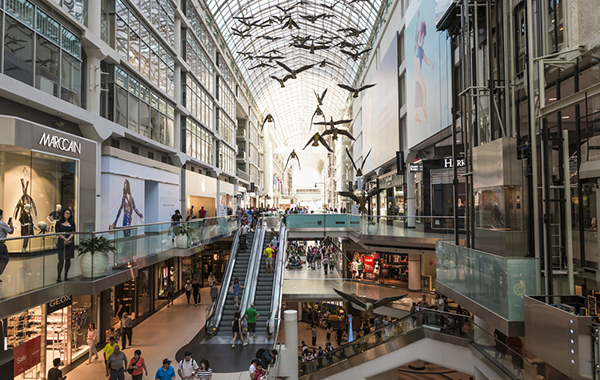
Dave Gray
What are your rights when injured in a slip and fall accident at a shopping mall?
Renovation ContractorGrillo, who has been in the forefront of shaping personal injury litigation in the GTA for the past 30 years, observes that you have certain rights under the Occupier’s Liability Act when injured in a slip and fall accident in a shopping mall through no fault of your own.
Slip and fall accidents in shopping malls are quite common, the major causes being chipped or cracked floors, water tracked in from outside by other shoppers, slippery surfaces, wrinkled carpets, unmarked freshly mopped floors, leaks and improper lighting. They can also be caused by building code violations such as lack of handrails, defects in escalators such as broken entry maps and misaligned handrails, spilled foods or cleaning chemicals, and even being shoved or pushed by other shoppers at crowded events such as a Black Friday sale. According to Salvatore Grillo, founder and principal at Grillo Barristers Personal Injury Lawyers, shopping malls and stores have a responsibility to provide a safe and secure environment.

Grillo, who has been in the forefront of shaping personal injury litigation in the GTA for the past 30 years, observes that you have certain rights under the Occupier’s Liability Act when injured in a slip-and-fall accident in a shopping mall through no fault of your own. These include:
A right to seek compensation for damages
You have a right to seek compensation for both pecuniary and non-pecuniary damages. Pecuniary damages are those that can be quantified in monetary terms such as medical expenses, lost wages and property repair or replacement. The Ontario Court of Appeal has made an effort to explain pecuniary damages in McIntyre v. Docherty as “pecuniary damages are generally assessed on the basis of calculable losses for items such as the plaintiff’s prospective loss of earnings and profits and costs of future care, as well as other expenses.” Past and future medical expenses fall here. The Court explains non-pecuniary damages as, “In contrast, non-pecuniary damages cannot be arithmetically calculated because they compensate the plaintiff for intangible losses arising from physical and psychological pain and suffering as well as from any loss of amenities or expectations of life.”
According to Section 3 (1) of the law, the occupier is required to “offer duty of care to visitors and their property. This duty of care applies whether the danger is as a result of the condition of the premises or by an activity that has been undertaken on the premises.” You must prove that the occupier had knowledge that the hazard existed. You cannot sue, as an example, if the accident is as a result of a drink spill in a restaurant that occurred only seconds before the fall (before the restaurant could clean it up).
Willful assumption of risk
Note that you are not entitled to compensation if you willingly assumed the risk that led to your accident. This notwithstanding, Section 4 (1) of the law states that the occupier still has a “duty to not create a danger with deliberate attempt to cause damage or harm to the person or his/her property and to not act in reckless disregard to your person or property.” As an example, if you ignore posted warning signs or fail to take reasonable precautions while engaging in an activity at the shopping mall, you may not qualify for compensation and even if you do, the settlement will be reduced by a percentage representing your fault/responsibility.
Direct contractors
According to Section 5 (2) of the act, you are not entitled to compensation if you are working at the building on contract such as if you are doing repairs or maintenance or are a construction worker unless this is expressly provided for in the contract.
Employees of independent contractors
Section 6 (1) touches on liability where the slip and fall injury occurs while working for an independent contractor contracted by the occupier such as a cleaning company. In such a case, compensation should be sought from the contractor.
Common areas under storeowners
If a store owner is exclusively responsible for a particular common area, then he/she has the same duty of care as that of the occupier under the Act in as far as the common area is concerned.
Tenancy agreement detailing the landlord’s duty to maintain the building
If the tenancy agreement states that it is the responsibility of the landlord to maintain and repair the shopping mall, then the duty of care shifts from the occupier to the landlord.
Exception: Crown/municipal occupier
If the occupier is a municipal corporation or the Crown, there are exceptions. This is done to protect the government from crippling liability claims.
Right to take the claim to court
If you are not satisfied with the settlement you get from the Occupier’s insurer, you have a right to go for mediation. If the outcome of the mediation does not please you, you have the right to take the claim to court where a judge or a jury of your peers will determine fault and award compensation.
